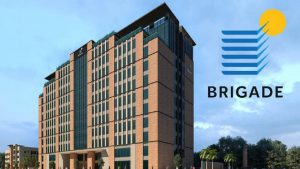Over 70,000 cooperative housing societies in Maharashtra can now breathe a sigh of relief — the long-winded process of obtaining deemed conveyance just got a digital upgrade. With the launch of the PRATYAY MahaBhumi portal by the state cooperation department, societies can now complete every step of the deemed conveyance process online, without ever having to physically visit a government office.
Also Read:- Non Occupancy Charges in Society in Maharashtra in 2025
What’s New: A Seamless Online Experience
Starting Monday, eligible societies can apply for deemed conveyance digitally via the newly launched PRATYAY MahaBhumi platform. The portal streamlines the entire procedure, right from document submission and scrutiny to scheduling hearings and receiving the final certificate.
“The idea is to cut red tape and create a single-window system that enhances transparency and saves time,” said a senior official from the cooperation department.
Chief Minister Devendra Fadnavis inaugurated the platform earlier this week, marking a key step in Maharashtra’s e-governance push. This shift to a digital process is expected to simplify a complex journey that once discouraged most societies from even beginning their applications.
Also Read:- Municipal Tax on Commercial Property: Pay Online | Rules
Key Features of PRATYAY MahaBhumi
- Complete digital submission of all eight required documents
- A timeline of six months for the entire process, from application to certificate
- Hearing schedules and communications will be updated online
- Offline hearings are allowed in certain cases, but physical documents won’t be accepted
- Part of the e-quasi-judicial framework — ensuring faster legal resolution
The Game-Changer for Societies
As per the cooperation department, all registrars across Maharashtra — including district deputy registrars and assistant registrars — have been instructed to process applications exclusively through this online system. Offline applications are no longer accepted.
“This is a game-changer for cooperative housing societies,” said Deputy Registrar Kiran Sonawane. “Citizens will no longer need to make repeated trips to government offices. The new system is time-saving, transparent, and effective.”
Training sessions are already underway for officials and legal professionals to ensure a smooth rollout of the portal.
Also Read:- How to apply for Cidco Housing Scheme 2025 – Housiey
Why This Move Matters
Out of Maharashtra’s 1.25 lakh registered housing societies, a staggering 78,116 still don’t have deemed conveyance. That’s more than 62% of societies functioning without legal ownership of the land they’re built on. This lack of ownership exposes residents to legal and financial risks and stalls vital processes like structural repairs, redevelopment, and even availing of TDR (Transfer of Development Rights).
“Virtual hearings aren’t just a pandemic workaround anymore,” noted Shreeprasad Parab, expert director of the State Housing Federation. “They’re now a vital part of simplifying cooperative sector governance and ensuring ease of doing business.”
Persistent Challenges & Industry Appeals
Though the digital shift is a giant leap forward, challenges remain. Currently, societies need to upload eight documents for the application. Housing federations have urged the state to reduce this to five or six to make the process even more accessible.
The provision for deemed conveyance was introduced back in 2008, with rules formalized in 2010. However, the uptake remained poor. Many societies were bogged down by red tape, complex paperwork, and the inability to navigate legal procedures, causing thousands of projects to remain under the developer’s control even decades after possession.
Also Read:- MHADA Lottery 2025: Over 5,000 Affordable Homes to Light Up Mumbai This Diwali
Without deemed conveyance:
- Land ownership stays with the builder or original landowner
- Societies cannot legally undertake structural repairs or redevelopment
- Access to home loans or urban planning benefits like TDR becomes limited
This portal, therefore, is more than just a tech upgrade — it’s a long-overdue solution to a critical governance bottleneck in Maharashtra’s housing ecosystem.
Over 70,000 cooperative housing societies in Maharashtra can now breathe a sigh of relief — the long-winded process of obtaining deemed conveyance just got a digital upgrade. With the launch of the PRATYAY MahaBhumi portal by the state cooperation department, societies can now complete every step of the deemed conveyance process online, without ever having to physically visit a government office.
Also Read:- Non Occupancy Charges in Society in Maharashtra in 2025
What’s New: A Seamless Online Experience
Starting Monday, eligible societies can apply for deemed conveyance digitally via the newly launched PRATYAY MahaBhumi platform. The portal streamlines the entire procedure, right from document submission and scrutiny to scheduling hearings and receiving the final certificate.
“The idea is to cut red tape and create a single-window system that enhances transparency and saves time,” said a senior official from the cooperation department.
Chief Minister Devendra Fadnavis inaugurated the platform earlier this week, marking a key step in Maharashtra’s e-governance push. This shift to a digital process is expected to simplify a complex journey that once discouraged most societies from even beginning their applications.
Also Read:- Municipal Tax on Commercial Property: Pay Online | Rules
Key Features of PRATYAY MahaBhumi
- Complete digital submission of all eight required documents
- A timeline of six months for the entire process, from application to certificate
- Hearing schedules and communications will be updated online
- Offline hearings are allowed in certain cases, but physical documents won’t be accepted
- Part of the e-quasi-judicial framework — ensuring faster legal resolution
The Game-Changer for Societies
As per the cooperation department, all registrars across Maharashtra — including district deputy registrars and assistant registrars — have been instructed to process applications exclusively through this online system. Offline applications are no longer accepted.
“This is a game-changer for cooperative housing societies,” said Deputy Registrar Kiran Sonawane. “Citizens will no longer need to make repeated trips to government offices. The new system is time-saving, transparent, and effective.”
Training sessions are already underway for officials and legal professionals to ensure a smooth rollout of the portal.
Also Read:- How to apply for Cidco Housing Scheme 2025 – Housiey
Why This Move Matters
Out of Maharashtra’s 1.25 lakh registered housing societies, a staggering 78,116 still don’t have deemed conveyance. That’s more than 62% of societies functioning without legal ownership of the land they’re built on. This lack of ownership exposes residents to legal and financial risks and stalls vital processes like structural repairs, redevelopment, and even availing of TDR (Transfer of Development Rights).
“Virtual hearings aren’t just a pandemic workaround anymore,” noted Shreeprasad Parab, expert director of the State Housing Federation. “They’re now a vital part of simplifying cooperative sector governance and ensuring ease of doing business.”
Persistent Challenges & Industry Appeals
Though the digital shift is a giant leap forward, challenges remain. Currently, societies need to upload eight documents for the application. Housing federations have urged the state to reduce this to five or six to make the process even more accessible.
The provision for deemed conveyance was introduced back in 2008, with rules formalized in 2010. However, the uptake remained poor. Many societies were bogged down by red tape, complex paperwork, and the inability to navigate legal procedures, causing thousands of projects to remain under the developer’s control even decades after possession.
Also Read:- MHADA Lottery 2025: Over 5,000 Affordable Homes to Light Up Mumbai This Diwali
Without deemed conveyance:
- Land ownership stays with the builder or original landowner
- Societies cannot legally undertake structural repairs or redevelopment
- Access to home loans or urban planning benefits like TDR becomes limited
This portal, therefore, is more than just a tech upgrade — it’s a long-overdue solution to a critical governance bottleneck in Maharashtra’s housing ecosystem.






